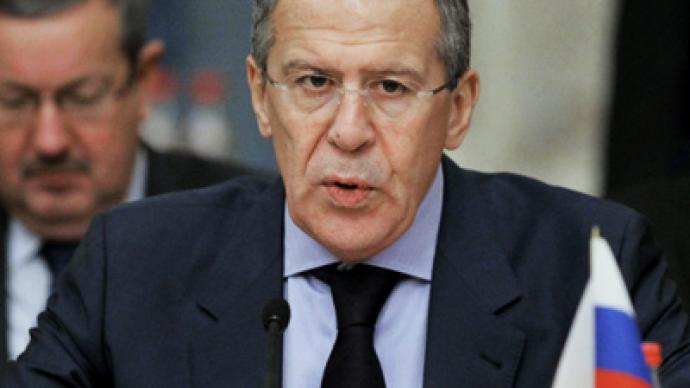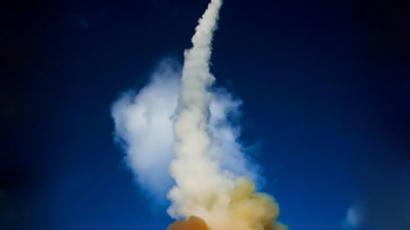Russian FM lashes out at US amendments to New START treaty

As the New START treaty could finally be ratified, Russia's Foreign Minister Sergey Lavrov says that the final document from the US Senate contains some questionable points.
“The final draft resolution adopted by the US Senate is more hard-line than the initial version put forward for voting,” Lavrov said, opening the debates on New START in the lower house of the Russian parliament Friday.On Thursday, the US Senate finally ratified the nuclear arms reduction treaty after months of indecision. However, under pressure from the Republican Party, the Senate made some amendments to the document. These now have to be considered by the Russian side.In particular, the ratification resolution states that New START should not touch upon the subject of the US anti-missile program development. However the Russian Foreign Ministry says it doubts that the resolution has any legal force at all.“I'd like to remind you that the treaty unambiguously states there is a link between strategic offensive and defensive weapons," Lavrov pointed out.“The treaty also says that any party can pull out if an emergency situation occurs. And Russia definitely believes that the creation of a fully-fledged, global missile defense system by the US would be such an emergency situation,” Lavrov said.“There is another problem. The Senate's resolution claims that the treaty does not apply to new kinds of non-nuclear strategic weapons that could be developed in the future. But this is not correct, either,” Lavrov said.In spite of these criticisms, Lavrov expressed his hopes for ratification in the nearest future.“We hope the new treaty will have the support of the State Duma,” he said. “We think all necessary prerequisites for that have been met. Implementing this treaty will contribute to the security of our country and international stability, will contribute to nuclear non-proliferation and help our relations with the United States and the rest of the world.”After ratification by the lower house of parliament, the New START will have to go through debates in the upper house, and through President Medvedev’s approval, but these two final steps are expected to be scheduled for next year.Meanwhile, both Presidents Medvedev and Obama have already hailed the US Senate's approval of the new nuclear arms reduction treaty as “historic”, and Dmitry Medvedev pointed out New START’s impending approval as a major achievement of 2010.New START is designed to replace the arms reduction treaty between the United States and Russia that expired in 2009.When ratified, it will see the two countries’ nuclear arsenal slashed by a third each.According to Victor Mizin of Institute for Strategic Assessments, US amendments to New START are motivated by the goal of destroying Obama’s image. ”I think it is [an] open secret that Russian lawmakers are quite irritated by so many reservations and attachments which were added to the text of the resolution at the last moment under the pressure of the Republicans,” he said. “The major reason for that is that [the] Republicans would like to kill everything linked with Obama or his image.”.
Russia would not object to Washington’s missile defense plans providing it is invited to take part in them, believes political analyst Sergey Strokan.“If we go to the preamble of the treaty, there is a reference to the interdependence between offensive strategic weapons and defensive strategic weapons,” Strokan said. “So, the Russian side understands it in such a way that this leaves no room for the deployment of the anti-ballistic missile system in Europe, this notorious defense shield the Russian side believes will jeopardizes Russian security. There is only one solution which we see here: if Russia is incorporated in that would-be anti-ballistic missile system. Then definitely this would be a happy end and a decision which would meet the interests of both sides. This, so far, is not the case.”














